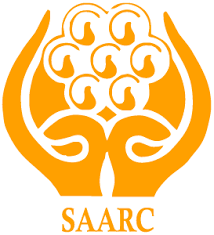
Rumors are circulating that the UML, the second biggest coalition partner in the Government, is exercising a great deal of pressure over the Nepali Congress to appoint Arjun Karki, a prominent civil society leader as SAARC Secretary General.
While rumors might be taken for what they are, just “rumors” and while it is obvious to expect a strong wall of resistance from the Nepali Congress over the proposal especially when such positions are agreed through diplomatic negotiations with all the members of the regional bloc, we have a chance to think about who is in a better position to lead a stumbled but still promising bloc like the SAARC.
Let’s have a look at different experiences around the world.
We can roughly divide regional organizations in two major groups: the “politics” based bodies and the more “diplomacy” driven ones.
In the former you have a bunch of nations which are determined to first share and ultimately give up their sovereignty because they are strongly determined to pursue a political project. The later instead is a much diluted version of the former in terms of ambition and dimension of the integration project in which the decision making process is normally managed by external affairs bureaucrats from the member countries.
Hard not to understand that only when the political dimension is strong, the integration process will happen at a steadier and faster pace; instead, when bureaucrats are running the show, the opposite happens.
The best example among regional groups aspiring for political unity is with no doubt the European Union, probably followed by the East African Community a regional bloc comprising Kenya, Uganda, Tanzania, Rwanda, Burundi and Tanzania.
SAARC falls in the slow pace diplomacy driven integration group possibly together with others regional organizations in Latin America and other regional blocs in Africa. The African Union is more an umbrella bloc than a real emulator that the EU integration process especially since the killing of Gaddafi in 2011. Indeed after been rejected by its Arab peers, the former leader of Libya had become the “banker” of African integration, financially supporting the African Union, its brainchild.
The EU has the strongest political union agenda and, even now, many consider it as an embryonic confederation especially for countries who have adopted the EURO as currency. Yet every day we read about how bumpy and difficult the road is towards it even among nations that are bound together by the inspiring principle and commitment to build an ‘ever deeper union”.
The East African Community could offer an example of how developing counties can have an ambitious regional agenda.
While the role of Secretary General of EAC is still handled by a senior diplomat, the leaders of the member countries are not only genuinely engaged in the process but they lead it and they have set a very ambitious political agenda.
The ASEAN offers another interesting example for SAARC: the members having no big vision or dreams of creating federations like the Europeans or East Africans but, probably reflecting a cultural pragmatism typical of the region, they work incessantly like small ants towards incremental, though very tangible steps that reflect the ambition of the Southeast Asian region. The Secretary General of ASEAN is still a diplomat but I would not be surprised, given the ambition of the project, if very soon a strong political personality will be selected for the place.
The selection of the leadership is actually what made the EU a more and more relevant player. Despite strong criticisms from ordinary people about the aloofness of the entire integration project, the EU does count a lot in the ordinary lives of Europeans.
It should not be surprised that the two highest roles in the complex institutional framework of the EU, the president of the Commission, its executive body, is Manuel Barroso while the President of the European Council that represents heads of states is Herman Van Rompuy. They are the former prime ministers of Portugal and Belgium respectively.
As heavyweights like the current Prime Minister of Poland, Donald Tusk will soon replace Van Rumpuoy while Barroso’s job will be handed over to a much controversial but still a giant of European integration in the person of Junker, the former prime minister of tiny Luxemburg.
Going back to South Asia, who can really recall who is the Chairman of the SAARC? Does anyone really know if such a position exists? Actually no one should be bothered to know because if it does it is just a pure formality. The reality is that the decision making process at SAARC is on hold since its establishment.
A Modi led or better pushed SAARC can take some bold steps ahead but others regional leaders should also have ownership in the initiative and not let the Indian prime minister drive the process alone. Given the reality that most of SAARC countries are facing delicate internal situations, the only solution is to copy the EU model by appointing a powerful Secretary General, not a bureaucrat nor a civil society leader but a former prime minister of the member states.
Only a former prime minister, with vision, determination will be able to dial the direct number of the current leaders and ask for their attention, contributions and political capital needed to strengthen the organization. Only a former prime minister can successfully lobby for a much stronger secretariat that should be able to support the diplomatic initiatives taken by the Secretary General y to enhance the level of the game. Only a Secretariat with real resources at its disposal can prove its relevancy to the people of the region.
In short only a former Prime Minister can lay the foundation for a South Asian’s version of an ‘ever deeper and lasting political union”.










Add new comment